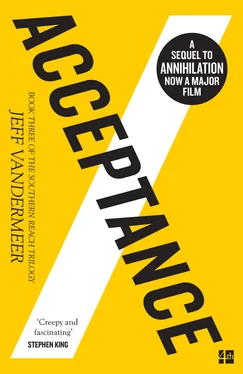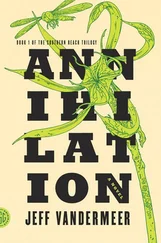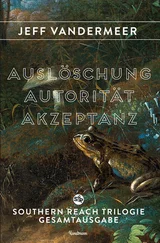Soon the lighthouse rose solid and tall above him. It served as a daymark so boats could navigate the shallows, but also was lit at night half the week, corresponding to the schedules of commercial traffic farther out to sea. He knew every step of its stairs, every room inside its stone-and-brick walls, every crack and bit of spackle. The spectacular four-ton lens, or beacon, at the top had its own unique signature, and he had hundreds of ways to adjust its light. A first-order lens, over a century old.
As a preacher he thought he had known a kind of peace, a kind of calling, but only after his self-exile, giving all of that up, had Saul truly found what he was looking for. It had taken more than a year for him to understand why: Preaching had been projecting out , imposing himself on the world, with the world then projecting onto him. But tending to the lighthouse—that was a way of looking inward and it felt less arrogant. Here, he knew nothing but the practical, learned from his predecessor: how to maintain the lens, the precise workings of the ventilator and the lens-access panel, how to maintain the grounds, how to fix all the things that broke—scores of daily tasks. He welcomed each part of the routine, relished how it gave him no time to think about the past, and didn’t mind sometimes working long hours—especially now, in the afterglow of Charlie’s embrace.
But that afterglow faded when he saw what awaited him in the gravel parking lot, inside the crisp white fence that surrounded the lighthouse and the grounds. A familiar beat-up station wagon stood there, and beside it the usual two Séance & Science Brigade recruits. They’d snuck up on him again, crept in to ruin his good mood, and even piled their equipment beside the car already—no doubt in a hurry to start. He waved to them from afar in a halfhearted way.
They were always present now, taking measurements and photographs, dictating statements into their bulky tape recorders, making their amateur movies. Intent on finding … what? He knew the history of the coast here, the way that distance and silence magnified the mundane. How into those spaces and the fog and the empty line of the beach thoughts could turn to the uncanny and begin to create a story out of nothing.
Saul took his time because he found them tiresome and increasingly predictable. They traveled in pairs, so they could have their séance and their science both, and he sometimes wondered about their conversations—how full of contradictions they must be, like the arguments going on inside his head toward the end of his ministry. Lately the same two had come by: a man and a woman, both in their twenties, although sometimes they seemed more like teenagers, a boy and girl who’d run away from home dragging a store-bought chemistry set and a Ouija board behind them.
Henry and Suzanne. Although Saul had assumed the woman was the superstitious one, it turned out she was the scientist—of what?—and the man was the investigator of the uncanny. Henry spoke with a slight accent, one Saul couldn’t place, that put an emphatic stamp of authority on everything he said. He was plump, as clean-shaven as Saul was bearded, with shadows under his pale blue eyes, black hair in a modified bowl cut with bangs that obscured a pale, unusually long forehead. Henry didn’t seem to care about worldly things, like the winter weather, because he always wore some variation on a delicate blue button-down silk shirt with dress slacks. The shiny black boots with zippers down the side weren’t for trails but for city streets.
Suzanne seemed more like what people today called a hippie but would’ve called a communist or bohemian when Saul was growing up. She had blond hair and wore a white embroidered peasant blouse and a brown suede skirt down below the knee, to meet the calf-high tan boots that completed her uniform. A few like her had wandered into his ministry from time to time—lost, living in their own heads, waiting for something to ignite them. The frailty of her form made her somehow more Henry’s twin, not less.
The two had never given him their last names, although one or the other had said something that sounded like “Serum-list” once, which made no sense. Saul didn’t really want to know them better, if he was honest, had taken to calling them “the Light Brigade” behind their backs, as in “lightweights.”
When he finally stood in front of them, Saul greeted them with a nod and a gruff hello, and they acted, as they often did, like he was a clerk in the village grocery store and the lighthouse a business that offered some service to the public. Without the twins’ permit from the parks service, he would have shut the door in their faces.
“Saul, you don’t look very happy even though it is a beautiful day,” Henry said.
“Saul, it’s a beautiful day,” Suzanne added.
He managed a nod and a sour smile, which set them both off into paroxysms of laughter. He ignored that.
But they continued to talk as Saul unlocked the door. They always wanted to talk, even though he’d have preferred that they just got on with their business. This time it was about something called “necromantic doubling,” which had to do with building a room of mirrors and darkness as far as he could tell. It was a strange term and he ignored their explanations, saw no way in which it had any relationship to the beacon or his life at the lighthouse.
People weren’t ignorant here, but they were superstitious, and given that the sea could claim lives, who could blame them. What was the harm of a good-luck charm worn on a necklace, or saying a few words in prayer to keep a loved one safe? Interlopers trying to make sense of things, trying to “analyze and survey” as Suzanne had put it, turned people off because it trivialized the tragedies to come. But like those annoying rats of the sky, the seagulls, you got used to the Light Brigade after a while. On dreary days he had almost learned not to begrudge the company. Why do you see the speck in your neighbor’s eye but not notice the log in your own eye?
“Henry thinks the beacon could operate much like such a room,” Suzanne said, as if this was some major and astounding discovery. Her enthusiasm struck him as serious and authentic and yet also frivolous and amateurish. Sometimes they reminded him of the traveling preachers who set up tents at the edges of small towns and had the fervor of their convictions but not much else. Sometimes he even believed they were charlatans. The first time he’d met them, Saul thought Henry had said they were studying the refraction of light in a prison.
“Are you familiar with these theories?” Suzanne asked as they started to climb; she was lightly adorned with a camera strapped around her neck and a suitcase in one hand. Henry was trying not to seem winded, and said nothing. He was wrestling with heavy equipment, some of it in a box: mics, headphones, UV light readers, 8mm film, and a couple of machines featuring dials, knobs, and other indicators.
“No,” Saul said, mostly to be contrary, because Suzanne often treated him like someone without culture, mistook his brusqueness for ignorance, his casual clothes as belonging to a simple man. Besides, the less he said, the more relaxed they were around him. It’d been the same with potential donors as a preacher. And the truth was, he didn’t know what she was talking about, just as he hadn’t known what Henry meant when he’d said they were studying the “taywah” or “terror” of the region, even when he’d spelled it out as t-e-r-r-o-i-r.
“Prebiotic particles,” Henry managed in a jovial if wheezy tone. “Ghost energy.”
As Suzanne backed that up with a longish lecture about mirrors and things that could peer out of mirrors and how you might look at something sideways and know more about its true nature than head-on, he wondered if Henry and Suzanne were lovers; her sudden enthusiasm for the séance part of the brigade might have a fairly prosaic origin. That would also explain their hysterical laughter down below. An ungenerous thought, but he’d wanted to bask in the afterglow of the night with Charlie.
Читать дальше












